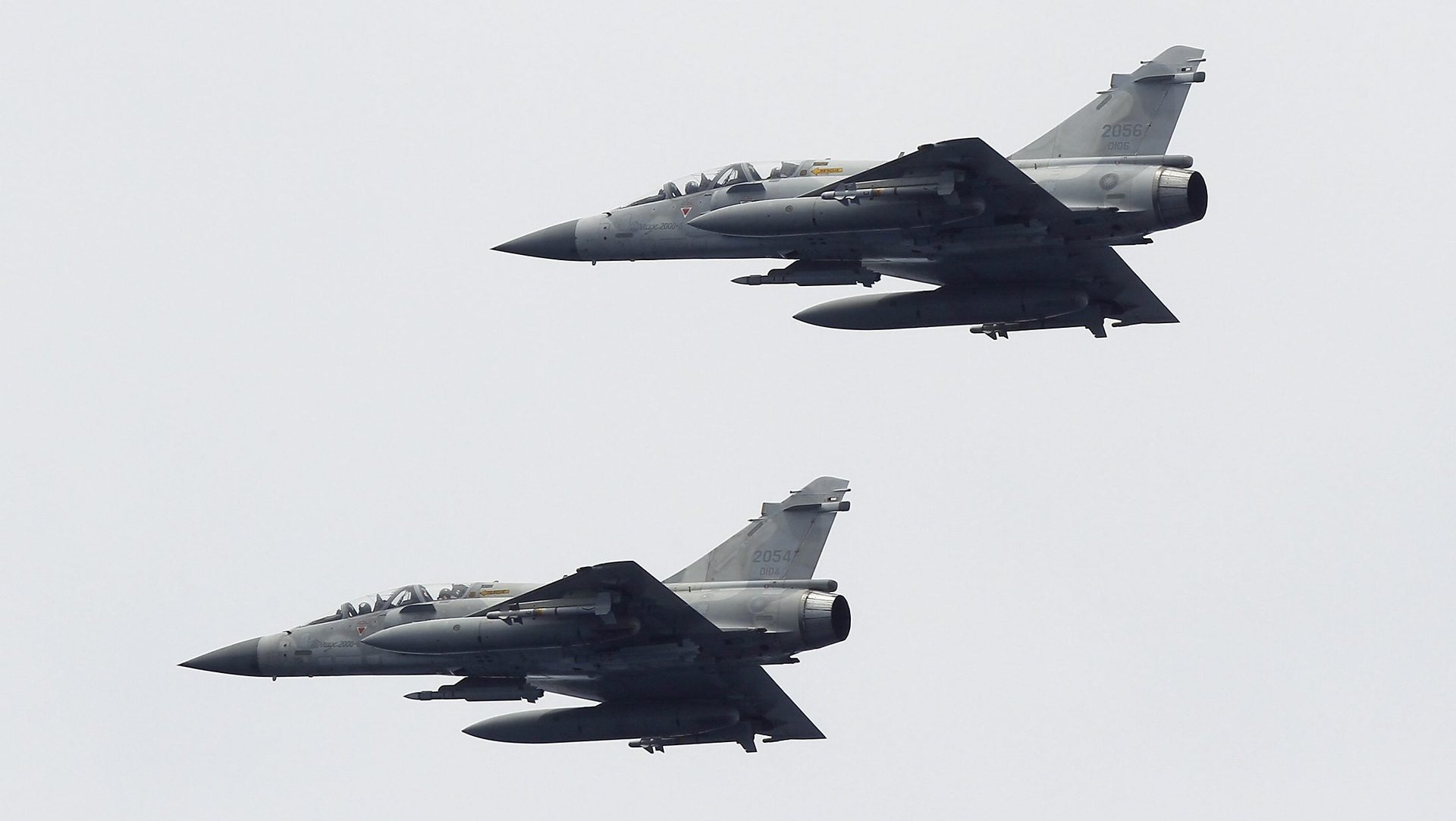Taiwan refuses to recognize any air defense zone Beijing creates in the South China Sea
Taiwan said today (June 6) that it will ignore any air defense identification zone (ADIZ) China might establish in the South China Sea. Beijing has indicated that it could soon set up such a zone, in which aircraft are supposed to identify themselves to Chinese authorities as they fly through.


Taiwan said today (June 6) that it will ignore any air defense identification zone (ADIZ) China might establish in the South China Sea. Beijing has indicated that it could soon set up such a zone, in which aircraft are supposed to identify themselves to Chinese authorities as they fly through.
China has been going about a methodic militarization of the sea in recent years.
“We will not recognize any ADIZ by China,” Taiwan defense minister Feng Shih-kuan said in a parliamentary session.
The US has also voiced its opposition to such a zone. Last month two Chinese fighter jets intercepted a US reconnaissance plane operating in international airspace over the sea, flying dangerously close to it in the process.
US secretary of state John Kerry is in Beijing today for the annual US-China Strategic and Economic Dialogue. Heading into the talks, he urged China to not unilaterally announce such a zone.
“We will consider an ADIZ over portions of the SCS as a provocative and destabilizing act,” Kerry said yesterday.
China set up an ADIZ in the East China Sea in 2013.
Taiwan’s announcement will give Beijing more reason to be upset with what it still considers to be a renegade province, even though Taiwan has governed itself as a country and held independent elections for decades. Over the weekend Taiwan’s new president, Tsai Ing-wen, made her first statement about China’s 1989 crackdown against pro-democracy protests in Tiananmen Square, on the occasion of the event’s 27th anniversary.
“As a president, I’m not finger-pointing at the political system on the mainland, but sincerely sharing the experience of the democratization of Taiwan,” she said. “If the mainland could give the people more rights, the world would pay it more respect.”
The first president from pro-independence Democratic Progressive Party in eight years, Tsai also angered Beijing by referring to the 1992 “talks” in her inaugural speech. Beijing prefers “1992 consensus” when referring to the historical discussion between the two sides, insisting they agreed on a ”one China” principle.